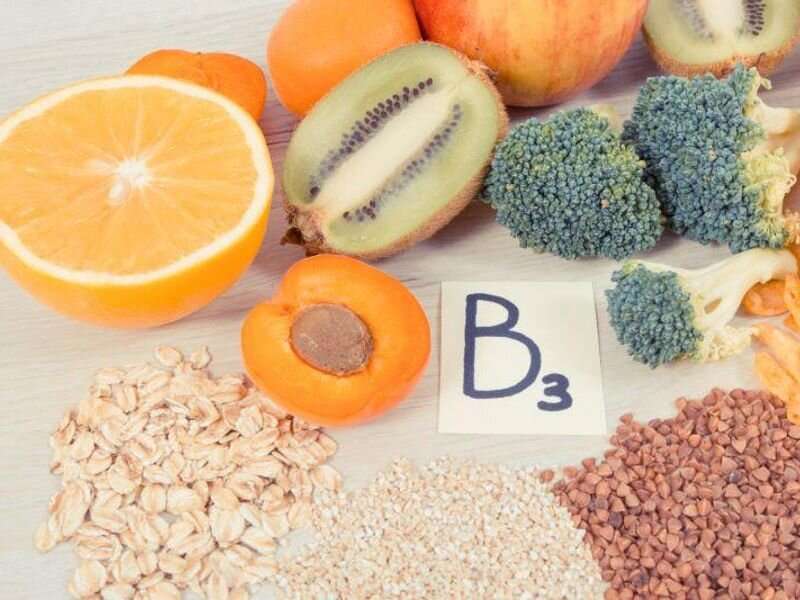Dietary niacin intake linked to migraine in US adults

Dietary niacin intake is associated with migraine among U.S. adults, with an L-shaped curve and an inflection point of about 21.0 mg/day, according to a study published online July 25 in Nutrients.
Huanxian Liu, M.D., from the Chinese PLA General Hospital in Beijing, and colleagues examined the association between dietary niacin and migraine using cross-sectional data from people aged older than 20 years who participated in the National Health and Nutrition Examination Survey between 1999 and 2004. Data were included for 10,246 participants, of whom 20.1 percent experienced migraines.
The researchers found that the adjusted odds ratio values for dietary niacin intake and migraine were 0.83, 0.74, and 0.72 in quartiles (Q) 2 (12.4 to 18.3 mg/day), Q3 (18.4 to 26.2 mg/day), and Q4 (≥26.3 mg/day) of dietary niacin intake, respectively, compared with Q1 (lowest consumption, ≤12.3 mg/day). An L-shaped curve was exhibited for the association between niacin intake and migraine. Participants with niacin intake <21.0 mg/day had an odds ratio of 0.975 for developing migraine.
"There was an L-shaped connection between dietary niacin intake and migraine prevalence among adults in the United States, with an inflection point of roughly 21.0 mg/d," the authors write. "The results of this study draw people's attention to the association between dietary niacin intake and migraine."
More information: Huanxian Liu et al, Association between Dietary Niacin Intake and Migraine among American Adults: National Health and Nutrition Examination Survey, Nutrients (2022). DOI: 10.3390/nu14153052
Copyright © 2022 HealthDay. All rights reserved.



















